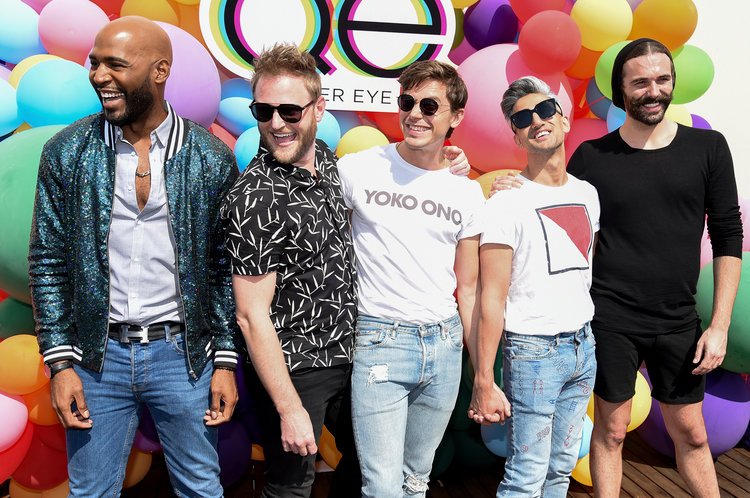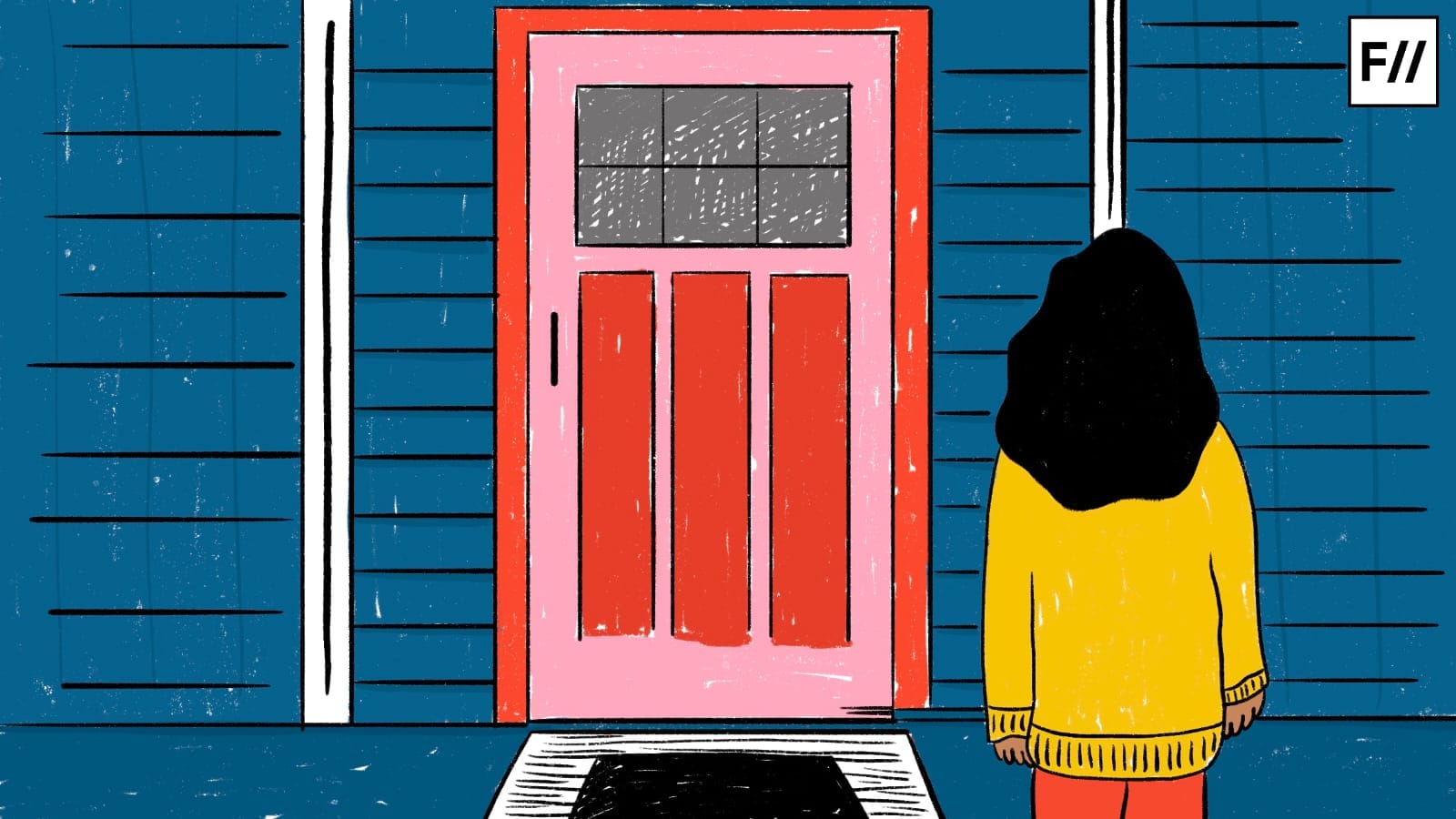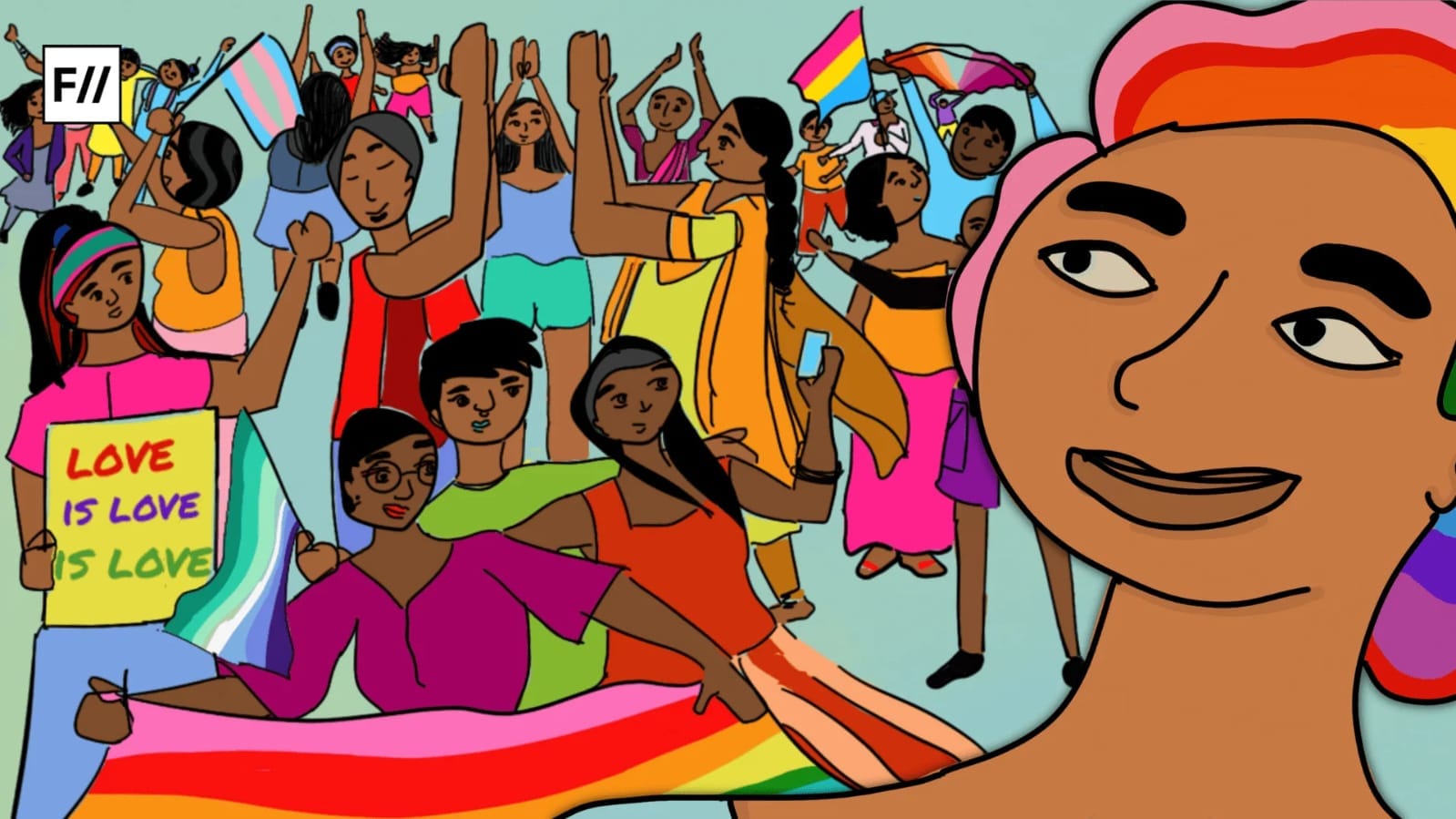Entering in 2018, the Netflix series Queer Eye, a reboot of the original 2003 show called Fab Five, has gained significant popularity due to its groundbreaking content which defies historically set conventions and understandings of male, female, masculinity, femininity and gender identity at large. In my case, it has largely been a contributor to preserving and bettering my mental health. It is an insightful marker for how media consumption affects the audience privately and personally, instead go being a detached space of creative material.
Though I had begun watching the show with a criticism of how it offers product replacement and materialistic gains as a method of overcoming one’s personal atrocities, I slowly have imbibed various principles from the show for overcoming immediate setbacks and troubles. It hasn’t come from the hair products offered by Jonathan Van Ness or from Tan France’s French tuck for uplifting an attire; but rather from the personal narratives of both the participants and the five hosts: Jonathan Van Ness, Tan France, Bobby Berk, Karamo Brown and Antoni Porowski, who expand on how their journey of coming to terms with their identity/ties and defining their ‘self’ had been a whirlpool of emotions and an immense amount of grappling with the society. It offers hope and a promise of a different future (if not a better one), which does not seem superficial since it accounts for negative contingencies that one may encounter in life.
Jonathan Van Ness, Tan France, Bobby Berk, Karamo Brown and Antoni Porowski, who expand on how their journey of coming to terms with their identity/ties and defining their ‘self’ had been a whirlpool of emotions and an immense amount of grappling with the society.
Beginning with the first episode and it’s title You Can’t Fix Ugly, I could sketch parallels between my younger-self and how that had impacted my dating life. While offering an external transformation to the man, the five of them ensure that there’s an emotional evolution in terms of discarding the self-detrimental beliefs that could be obscuring one’s interactions with others on a daily basis. Similarly, in another episode called When Robert Met Jamie, the anxieties adhering to one’s appearance are addressed by Karamo, the culture expert, who makes Robert write adjectives that he would ascribe to himself on a mirror. What may seem trivial, proved to be an essential activity for me as mirrors are the place where one reflects on their image and confronts their selves.
Also read: Celebrate Female Friendships With Netflix’s Grace And Frankie
Moreover, in Sky’s the Limit and Black Girl Magic, one sees how even within the LGBTQIA+ communities, there’s disparity and differences in experiences, in acceptance, in the nature of the brutality they have to steer through. Therefore, a sweeping generalisation of a spectrum of communities is malignant to the manner in which awareness and sensitivity regarding the same is perpetuated. Moreover, the episode mentioned an aspect which often remains unattended—the turbulence one faces within the family and how the gravity put on family values may often be peripheral.
Families are not safe haven for every person, as many a times, the love fostered is conditioned on rigid grounds of orthodoxy. It has aided my acceptance of how there exists a possibility of losing the one solid ground I hold dearly now, due to the intolerance that plagues family members. It has allowed me look beyond the romanticised portrayals of families and discover how agonising of a collective it can be in case of difference in beliefs regarding the rights of diverse communities.
he belief in one’s incompetence often stems from the supposedly ‘minor’ instances and one’s mental health issues are brushed aside under the assumption of how it is just a phase. However, in the course of watching Queer Eye, I have learnt not to dismiss my own understanding of my harrowing experiences or of the other.
Shouldering failures, especially asserting them to myself and to my parents, has always been an uncomfortable experience which I have preferred to avoid and escape, whenever possible. However, after watching Big Little Lies, a repeated emphasis on how confrontations are essential for overcoming the attached restlessness with it, helped me understand how my finicky and panicky demeanor rose out of self-denial of unsuccessful ventures. Through many episodes, I have gradually learnt to affirm statements in my head, to myself first, to ensure that internal frustration withers away in my personal and professional dealings. In God Bless Gay, the story of Mamma Tammy and his son send a stronger message of how if love and acceptance are to be limited, then it only points to how selfish we are in our values that we hold in confidence, and how flaky our ethics is then.
In addition to these episodes, every story carries an issue that may seem inconsequential to the other but for the subject, it dictates their entire life. The belief in one’s incompetence often stems from the supposedly ‘minor’ instances and one’s mental health issues are brushed aside under the assumption of how it is just a phase. However, in the course of watching Queer Eye, I have learnt not to dismiss my own understanding of my harrowing experiences or of the other.
While learning to assert my emotions, I have also found how, sometimes, picking up an old habit, a return to deserted passions can be healing. It can be therapeutic to simply clean one’s room, cook a new dish (or make an old one), use the available and accessible resources around myself to clear up my mental space, communicate with lost connections or straighten miscommunications, moving beyond my comfort zone in terms of how I dress and still retaining my individualised style, and sometimes, gazing around to find strength in others when toiling all by oneself gets exhausting.
While Queer Eye has been a source of power for me, we must be aware of the asymmetrical effect of the show. It would be unfair to call it a universal manner of maintaining good mental health and is therefore, a personal account of struggle and solution.
Featured Image Source: Digital Spy
About the author(s)
Swarna is a philosophy student with relatives who think she is pursing physiotherapy. Her music choice ranges from Annette Hanshaw to Justin Beiber(it’s a highly competitive playlist). Apart from that, she is mostly found rewatching In the Mood for Love , ordering stationary on Amazon and just scrolling through Swiggy. She is a sucker for masala chai, typewriters and anything written by Ismat Chughtai and Alan Ginsberg.




